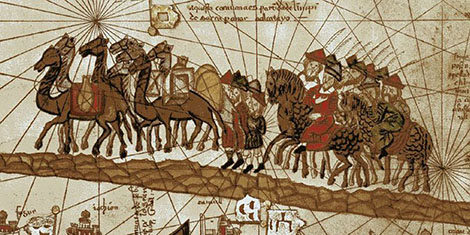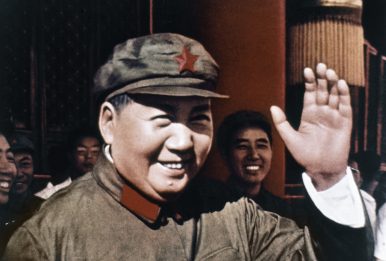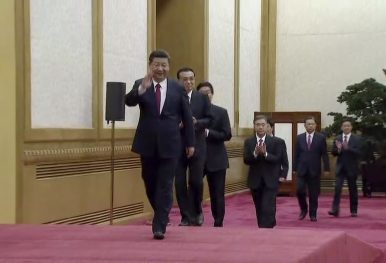I have some interest in matter cyber. When I attend seminar/discussions on cyber related issues I often hear of Internet Governance Multi Stake Holder Approach, UNGGE, Net Mundial etc.
Being a GD person most of these go over my head.
I decided to understand what is these all about.
My first take on Internet Governance is given below.
Watch this space for some more including some controversial observation !
INTERNET GOVERNANCE
- Maj Gen P K Mallick,VSM (Retd)
The Internet is often described as a “network of networks” because it is not a single physical entity, but hundreds of thousands of interconnected networks linking hundreds of millions of computers around the world. As such, the Internet is international, decentralized, and comprised of networks and infrastructure largely owned and operated by private sector entities. Computers connected to the Internet are identified by a unique Internet Protocol (IP) number that designates their specific location, thereby making it possible to send and receive messages and to access information from computers anywhere on the Internet. Domain names were created to provide users with a simple location name, rather than requiring them to use a long list of numbers. The domain name system (DNS) is the distributed set of databases residing in computers around the world that contain the address numbers, mapped to corresponding domain names. Those computers, called root servers, must be coordinated to ensure connectivity across the Internet.
The Internet is often described as a “network of networks” because it is not a single physical entity, but hundreds of thousands of interconnected networks linking hundreds of millions of computers around the world. As such, the Internet is international, decentralized, and comprised of networks and infrastructure largely owned and operated by private sector entities. As the Internet grows and becomes more pervasive in all aspects of modern society, the question of how it should be governed becomes more pressing.
Currently, an important aspect of the Internet is governed by a private sector, international organization based in California called the Internet Corporation for Assigned Names and Numbers (ICANN). ICANN manages and oversees some of the critical technical underpinnings of the Internet such as the domain name system and Internet Protocol (IP) addressing. ICANN makes its policy decisions using a multistakeholder model of governance, in which a “bottom-up” collaborative process is open to all constituencies of Internet stakeholders.
National governments have recognized an increasing stake in ICANN policy decisions, specially in cases where Internet policy intersects with national laws addressing such issues as intellectual property, privacy, law enforcement, and cybersecurity. Some governments around the world are advocating increased intergovernmental influence over the way the Internet is governed. For example, specific proposals have been advanced that would create an Internet governance entity within the United Nations (U.N.). Other governments (including the United States), as well as many other Internet stakeholders, oppose these proposals and argue that ICANN’s multistakeholder model is the most appropriate way to govern the Internet.
One working definition was developed at the World Summit on the Information Society (WSIS) in 2005: Internet governance is the development and application by governments, the private sector and civil society, in their respective roles, of shared principles, norms, rules, decision-making procedures, and programmes that shape the evolution and use of the Internet
The U.S. government has no statutory authority over the DNS. However, because the Internet evolved from a network infrastructure created by the Department of Defense, the U.S. government originally funded and operated (primarily through private contractors) many of the key components of the network architecture that enabled the domain name system to function.2 In 1998, with the Internet expanding beyond the academic and governmental spheres, the U.S. government transitioned the management of the DNS to a newly created not-for-profit international organization based in California called the Internet Corporation for Assigned Names and Numbers (ICANN).3 ICANN employed (and continues to employ) a multistakeholder system of governance whereby policy decisions are made by a Board of Directors with input from the various stakeholder groups that comprise the Internet and the domain name system. These stakeholders include owners and operators of servers and networks around the world, domain name registrars and registries, regional IP address allocation organizations, standards organizations, Internet service providers, local and national governments, noncommercial stakeholders, business users, intellectual property interests, and others.
On March 14, 2014, NTIA announced its intention to transition its stewardship role and procedural authority over key domain name functions to the global Internet multistakeholder community.11 NTIA’s stated intention was that it would let its IANA functions contract with ICANN expire on September 30, 2015, if a satisfactory transition could be achieved. Role of Congress in the IANA Transition Concerns have arisen in Congress over the proposed transition. Some Members have argued that the transition requires additional scrutiny by Congress, while others have questioned whether the transition should take place at all. While the U.S. government has no statutory authority over ICANN or the DNS, Congress does have legislative and budgetary authority over NTIA, which is seeking to relinquish its contractual authority over the IANA functions. As such, Congress has keenly monitored the progress of the transition, primarily through congressional committees with jurisdiction over NTIA. These include the House Energy and Commerce Committee and the Senate Commerce, Science, and Transportation Committee. Additionally, the House and Senate Appropriations Committees—which determine and control NTIA’s annual budget—could impact NTIA’s ability to relinquish its existing authority over the IANA functions.
Debate over Future Models of Internet Governance
Given its complexity, diversity, and international nature, how should the Internet be governed?
Some assert that a multistakeholder model of governance is appropriate, where all stakeholders (both public and private sectors) arrive at consensus through a transparent bottom-up process. Others argue that a greater role for national governments is necessary, either through increased influence through the multistake holder model, or under the auspices of an international body exerting intergovernmental control.
As part of the debate over an appropriate model of Internet governance, criticisms of ICANN have arisen on two fronts. One criticism reflects the tension between national governments and the current performance and governance processes of ICANN, whereby governments feel they lack adequate influence over ICANN decisions that affect a range of Internet policy issues. The other criticism has been fueled by concerns of many nations that the U.S. government has held undue legacy influence and control over ICANN and the domain name system.
The debate over multistakeholderism vs. intergovernmental control initially manifested itself in 2005 at the World Summit on the Information Society (WSIS), which was a conference organized by the United Nations. More recently, this debate has been rekindled in various international for a.
NETmundial
The day after the Montevideo Statement was released, the President of ICANN met with the President of Brazil, who announced plans to hold an international Internet governance summit in
April 2014 that would include representatives from government, industry, civil society, and academia. NETmundial, which was described as a “global multistakeholder meeting on the future of Internet governance,” was held on April 23-24, 2014, in Sao Paulo, Brazil.38 The meeting was open to all interested stakeholders, and was intended to “focus on crafting Internet governance
NETmundial
The day after the Montevideo Statement was released, the President of ICANN met with the President of Brazil, who announced plans to hold an international Internet governance summit in
April 2014 that would include representatives from government, industry, civil society, and academia. NETmundial, which was described as a “global multistakeholder meeting on the future of Internet governance,” was held on April 23-24, 2014, in Sao Paulo, Brazil.38 The meeting was open to all interested stakeholders, and was intended to “focus on crafting Internet governance.
Internet Governance and Terrorism
With ongoing concern over the use of the Internet by terrorist organizations, the question has arisen whether Internet governance mechanisms could be used to combat the use of the internet by terrorist entities. Traditionally, nation-states can govern the use and content of the Internet within their national boundaries and many have the authority, pursuant to their respective national laws, to monitor, block, and/or shut down websites within their borders.49 In some instances, these powers and actions have been controversial when, for example, antiterrorism concerns may be used to justify censorship or the suppression of free speech on the Internet.50 On an international level, governance of the Internet with respect to its content and use is problematic. As discussed earlier in this report, the Internet is decentralized and its functioning relies on the cooperation and participation by mostly private sector stakeholders around the world. As such, there is no international governance entity that currently has authority to remove global Internet content used to promote terrorism. While there have been proposals to establish some level of authority over the Internet by the United Nations, these proposals have originated, for the most part, from regimes such as China, Russia, and Iran, and have been consistently opposed by the United States and other Western nations who fear that increased United Nations authority over the Internet would ultimately support censorship and suppression of free speech.51
Could ICANN—a functioning model of nongovernmental multistakeholder Internet governance—be deployed to restrict or limit the use of the global Internet by terrorist groups? Currently, ICANN administers the technological infrastructure of the Internet (domain names, Internet protocol numbers and standards) and explicitly does not regulate Internet content. Any attempt to change ICANN policy toward regulating Internet content would likely be strongly opposed by most of the Internet stakeholders who administer and set policy for ICANN through a consensus process.
Finally, the ongoing debate over Internet governance will likely have a significant impact on how other aspects of the Internet may be governed in the future, especially in such areas as intellectual property, privacy, law enforcement, Internet free speech, and cybersecurity. Looking forward, the institutional nature of Internet governance could have far-reaching implications on important policy decisions that will likely shape the future evolution of the Internet.
One of the important ways that the Internet differs from other telecommunications technologies is in how much it depends on voluntary co-operation. The Internet is a network of networks (of networks, and so on), and each network operates more or less independently. The networks cooperate with one another, without a lot of central co-ordination, because it is in their independent interests to do so. In this way, the Internet is something like a market economy: people trade (goods in the economy, “packets” on the Internet) because they each get something out of it. In my view, it is the very alignment of each operator’s interests with the outcomes that has allowed the Internet to grow and flourish, such that it is a dominant communications technology of our time. In a centrally-organized and centrally-operated system, controls over how people configure systems would be imposed by the center. Centrally-managed systems tend to be expensive or hard to operate (or both) when they get very large. But the Internet is distributed, because in a network of networks there is no center. In a distributed environment, it’s often easier if one has clues about how to get started interoperating with others. Those clues are the IANA registries. They fall into three broad categories, which I describe below
under the U.S. Constitution, freedom of speech is an extremely broad right, but in many other countries, there are significant constraints on freedom of speech in the interests of preventing, for instance, hate speech. If ICANN adopts the more common and limited interpretation of free speech in its human rights commitment, it could create means for governments or businesses to use ICANN to moderate content.
It does not engender great confidence in ICANN that, at the same time it is seeking greater independence from governmental authorities, it turns to those same authorities for assistance in resolving controversial matters within its remit. As the transition moves forward, ICANN will need to develop the institutional maturity to deal with controversies of this sort independently.
Nearly half of the world’s population, including almost everyone in the United States, uses the Internet for business or personal purposes and pursuits, and it has become a critical vehicle for research, discourse, and commerce. ICANN plays an important role in maintaining the safety, security, reliability, and openness of the Internet, and it is necessary that it remain accountable and transparent.
The proposed changes to ICANN provide numerous improvements and tools for enhanced accountability, but there are also uncertainties. The proposal is a blueprint for an accountable institution, but it is unclear whether the result will be sound or whether the ICANN community can or will act responsibly and in a timely manner to hold ICANN accountable. no multistakeholder system that can be devised will ever be as effective at protecting a free and open Internet as the current United States government oversight system.
Daniel Sepulveda, 3 the Deputy Assistant Secretary of State and U.S. Coordinator for International Communications and Information Policy in the State Department’s Bureau of Economic and Business Affairs (EB) 4 and Lawrence E. Strickling, the Assistant Secretary of Commerce for Communications and Information and Administrator, National Telecommunications and Information Administration, is that the Internet is already being fractured by China which has developed an alternate root zone system as well as a separate naming convention. Sepulveda and Strickling write, “The digital economy has become one of the most powerful engines for global economic growth. If left unchanged, China’s regulations would undermine some of the most fundamental aspects of the Internet –- openness, reliability, and interoperability –- within China. By creating its own rules for domain name management, China is threatening to fragment the Internet, which would limit the Internet’s ability to operate as a global platform for human communication, commerce, and creativity.”
And those who believe that the IANA functions transition would temporarily stem China’s threat to fracture the Internet, need only look at China’s attempted censorship demands on the .XYZ top level domain name where the government of China demanded last year that the owner not allow 12,000 different words be accepted as domain names including “liberty” and “democracy” as revealing the terrible potential cost of maintaining the Internet’s “interoperability.”
Cruz, Lee and Lankford continue writing, “However any provision, such as human rights, that is included in ICANN’s bylaws automatically becomes an integral part of ICANN’s core mission and, in this case, could provide a gateway to content regulation.”
The United States government stands as the protector of freedom on the Internet. Vendors like ICANN help bring specific expertise to manage the day to day operations of the Internet, and the system functions well when the United States government plays its oversight role to prevent abuse. Absent the U.S. government’s light handed oversight, the idea of a free and open Internet will certainly become a thing of the past.
The Internet as we know it depends on there being a single, authoritative source for the names and numbers in order to work. For, while the government-overseen contracts and agreements are in place to establish the rules of the road, ICANN, Verisign, the regional registries, etc. are all shielded from antitrust scrutiny. Such pitfalls of collusion, monopoly power and price gouging might have arisen otherwise if the Internet had been brought up singularly in the private sector. Instead today’s single, usable and affordable Internet, again, is a virtue of U.S. oversight. It is a monopoly, yes, but a regulated one that can be pulled back if needs be, where claims of U.S. government property over the IANA functions act simply as a failsafe — just in case anything goes wrong. We must consider whether trading the current system for a single, unaccountable monopoly beyond law or competition, or one that could be subject to antitrust suits the moment it engages in anticompetitive activities, splintering the Internet, could actually be a far worse outcome. Antitrust law challenges to the IANA functions were fully anticipated in the 1998 statement of policy: “Applicable antitrust law will provide accountability to and protection for the international Internet community. Legal challenges and lawsuits can be expected within the normal course of business for any enterprise and the new corporation should anticipate this
Some governments have expressed concerns that the transition proposal limits governments’ ability to participate in the ICANN community on equal terms with other stakeholders. This is because, post-transition, government participation in ICANN policy development will be limited to a purely advisory role within the Governmental Advisory Committee (“GAC”). The new ICANN bylaws confine the GAC in two important ways. First, GAC “advice” to the ICANN Board requires “consensus,” defined as general agreement in the absence of any formal objection by any government, including the United States. Second, GAC advice can be rejected by a 60 percent vote of the Board, and government representatives cannot serve on the Board. Thus, in order for governments to dictate Board action, they would first need to obtain consensus (unanimous agreement) within the GAC, an organization in which the United States and other like-minded countries take an active role. Thereafter, any advisory decision still could be rejected by a 60 percent vote of the Board. The consequence of these developments is that governments that failed to capture ICANN during the transition process now are refocusing their efforts on other venues, including the United Nation’s International Telecommunication Union (“ITU”). In June, the presidents of China and Russia issued a joint statement supporting a multilateral global Internet governance system and “maintain[ing] [the] UN’s important role in setting up global Internet governance mechanisms.” Russia, China, Saudi Arabia, and others also are focusing on the ITU’s upcoming World Telecommunication Standardization Assembly (“WTSA”), which will address several important Internet public policy issues. The ITU will be an important setting for post-ICANN debates about the appropriate role for governments in Internet policy. Governments that failed to gain influence over ICANN are turning their attention back to the ITU. In June, the presidents of China and Russia issued a joint statement supporting a multilateral global Internet governance system and “maintain[ing] [the] UN’s important role in setting up global Internet governance mechanisms.” In October, the ITU’s World Telecommunication Standardization Assembly (“WTSA”) will convene, with an agenda likely to include a wide range of Internet-related issues. Governments like Russia, Saudi Arabia, China, and others are trying to expand the ITU’s activities at WTSA further into Internet public policy-related issues. As a result, I do not believe that governments will discontinue their efforts to expand government authority over the Internet—rather, those efforts are shifting to the ITU and other venues. Promoting and protecting a thriving Internet will require continued engagement in the global debate and ensuring that Internet governance mechanisms remain open, transparent, and representative of all relevant stakeholders. The transition will ensure that non-governmental stakeholders, including U.S. industry, will have front row seats in discussions about the Internet’s future – making it easier, though no less challenging, to keep it free and open for future generations.
Supporters of the transition45 argue that by transferring its remaining authority over ICANN and the DNS to the global Internet community, the U.S. government will bolster its continuing support for the multistakeholder model of Internet governance, and that this will enable the United States to more effectively argue and work against proposals for intergovernmental control over the Internet.
Those opposed, skeptical, or highly cautious about the transition48 point out that NTIA’s role has served as a necessary “backstop” to ICANN, which has given Internet stakeholders confidence that the integrity and stability of the DNS is being sufficiently overseen. Critics assert that in the wake of the Edward Snowden NSA revelations, foreign governments might gain more support internationally in their continuing attempts to exert intergovernmental control over the Internet, and that any added intergovernmental influence over the Internet and the DNS would be that much more detrimental to the interests of the United States if NTIA’s authority over ICANN and the DNS were to no longer exist.
Another concern regards the development of the transition plan and a new international multistakeholder entity that would provide some level of stewardship over the DNS. Critics are concerned about the risks of foreign governments—particularly repressive regimes that favor censorship of the Internet—gaining influence over the DNS through the transition to a new Internet governance mechanism that no longer is subject to U.S. government oversight The future of how ICANN and the DNS will be governed is highly relevant to the broader question of how the Internet should be governed. While it is true that ICANN’s jurisdiction is limited to the technical underpinnings of the Internet (unique Internet identifiers such as domain names and addresses), it is also true that ICANN policy decisions (such as new gTLDs) can affect other areas of Internet policy such as intellectual property, cybersecurity, privacy, and Internet freedom.
As the Internet expands and becomes more pervasive throughout the world in all aspects of modern society, the question of how it should be governed becomes more pressing, with national governments recognizing an increasing stake in ICANN policy decisions, especially in cases where Internet DNS policy intersects with national laws and interests. ICANN is viewed by many as a ground-breaking example of multistakeholder governance. While ICANN does not “control” the Internet, how it is ultimately governed may set an important precedent in future policy debates—both domestically and internationally—over how the Internet might be governed, and what role governments and intergovernmental organizations should play.
Who should attend? ICANN meetings are all about participation, collaboration, and finding solutions to the small – and large – problems that the Internet constantly faces. As a meeting attendee you could be from almost any profession and from any corner of the planet. ICANN is setup to allow everyone affected by its work – and that is pretty much everyone – to have a say in its processes. To ensure that the organization stays flexible and changes to meet the needs and demands of a rapidly changing Internet, not only do the SOs, ACs, and the Board go through regular reviews, but ICANN also maintains a strong culture of general public participation. Typical attendees include government representatives, business managers, IT managers and consultants, DNS industry managers and experts, intellectual property managers, academics, and others invested in the continuing stable, secure and resilient operation of the Internet. End users are also well represented. If you prefer to participate remotely, there are a wide range of mechanisms that make that possible.










/arc-anglerfish-arc2-prod-mco.s3.amazonaws.com/public/ZYZ2JZXBQREDXKGIWTS2AC4RCY.jpg)



